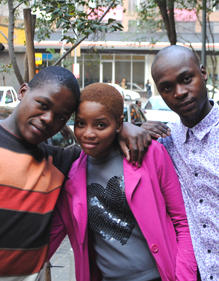
Much has been written about the born-free generation – the youngsters who were born in and soon after 1994, and who were eligible to vote in their first national election 20 years later. Much was also expected of their participation in the 2014 election, because of issues that deeply affect this generation, such as poverty, corruption and unemployment. This sector of the population is viewed as a key determinant of the country’s future course, and one that could alter the political landscape as well.
According to the Independent Electoral Commission, however, out of almost 2-million born-free youth, just over 646 000 had registered to vote – meaning that some 66% would not make their mark. Although the policies of the next five years will shape their futures and economic prospects, they chose to have no say in who will make those policies.
Analysts have offered various reasons for this apparent apathy, saying that the youth don’t fully understand that corruption is a barrier to good service delivery, or that those who do understand corruption feel it is everywhere so they will gain nothing by voting. Still others may not trust the government, or wish to make a political statement by abstaining.
Corruption is everywhere
We asked young people in Johannesburg – specifically Braamfontein, where Wits University is located and which is always teeming with students – if they voted, and if so, whether corruption was a motivating factor in their choice of political party. Most of the youth we chatted to, all aged between 18 and 29, said that corruption was not uppermost in their minds when voting, mainly because they felt it was omnipresent and their vote would change little in that respect.
“As long I didn’t vote for one of the major parties, it was okay,” said Miriam, 24, ”because they are full of corruption.”
“Corruption has been there for a long time,” said Petunia, 29. “Whether you vote or you don’t vote, it never changes. That’s why corruption didn’t concern me when I voted.”
“I believe corruption is everywhere,” said 19-year-old Bela. “Corruption in the ANC is in the spotlight because they’re in power, but we just don’t notice it in other parties because it’s not highlighted as much. If another party came into power, it would be the same.”
But others felt obliged to vote for the ruling party for one reason or another. ”I receive a social grant from the ANC,” said Thabiso, an 18-year-old student, “and if I vote for, say, the EFF I’m afraid that I won’t get the grant any more.”
He added, somewhat doubtfully, “I voted for the first time, and maybe the last time.”
It seems that political parties didn’t manage to capture the youth vote to the degree that they would have wanted, nor have they drawn them into the political system in great numbers. None of our respondents expressed excitement about their vote, or passionate attachment to any party simply because they believed in its policies – they mirrored the general attitude of their generation towards the elections.

